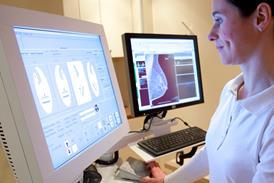Latest news – Page 2513
-
News
Some things wicked
The NHS plan promised a change in the quality of leadership. Carole Doherty reflects on the practicalities of achieving that ambition
-
News
Winter pressures
Over the winter there was only one story to be written about the NHS - why is not there a winter crisis? The latest report from the winter and emergency services team (WEST) confirms part of the answer - no influenza.
-
News
National database to log NHS errors
The Department of Health has announced the creation of an independent body to run a national database logging all 'failures, mistakes, errors and near misses' in the delivery of NHS healthcare.
-
News
Leadership centre may buck men-only trend
The Leadership Centre for Health looks set to be headed by a woman director, bucking the men-only trend of top NHS appointments.
-
News
Troubled finance round triggers joint search for fairer process
Department of Health officials are planning to attend a joint meeting of the Healthcare Financial Management Association and NHS Confederation in June to discuss how to improve the process of agreeing service and financial frameworks across the NHS.
-
News
Senior managers'pay
Pay rises for senior managers, including performance-related pay, must not exceed 3. 7 per cent of the pay bill for this group in any organisation this year, NHS chief executive Nigel Crisp announced last week.
-
News
Outsiders to shake up complacent DoH
The Department of Health could be in line for the most far-reaching shake-up of its existence, with outside organisations invited to feed into its internal review.
-
News
CHI launches investigation into London breastscreening unit
The Commission for Health Improvement is to undertake its first investigation requested by somebody other than the health secretary in England or Wales, into the breast-screening service at Hammersmith Hospitals trust.
-
News
Coming clean
The number of 'red'dirty hospitals has fallen after being named and shamed, but those in trouble still get the headlines, writes Laura Donnelly
-
News
Down but not out
Outpatient clinics are out-of-date and much of their function could occur in primary care, says the NHS Confederation. But will not some clinics always be needed? Mark Gould examines the arguments
-
News
monitor
Praise indeed! Monitor literally didn't know what do when he received an item of fan mail this week! Back from the framers, and since 'spreading good practice' is far more fashionable than boasting ever was, time to share the letter: 'Dear Monitor, I always read your column and sometimes actually ...
-
News
Raid on cash for child mental health service
Psychiatrists are furious that the final year of government money for improving services for thousands of children with mental health problems is effectively being lost - because the money is no longer ring-fenced.
-
News
NHS could help boost New Deal
The government's New Deal programme for getting people into work has an important role to play in NHS recruitment and helping the health service to become more representative of local communities, according to employment minister Tessa Jowell.
-
News
Days like this
Consultants' leaders are blocking moves to limit junior doctors'hours to 72 a week by 1994. The juniors claim that this is because consultants fear the deal could mean longer hours for them. But the consultants say they do not believe the timetable is practical. The Department of Health said it ...
-
News
More nudge than fudge
What is the government's strategy for improving the nation's health? Despite proliferating documents, It is hard to say, but Ann McGauran looks at recent reports and discovers some interesting trends
-
News
Root cause
The new boss at the Modernisation Agency has pleased staff by reassuring them that he will not relocate to London - for personal and professional reasons he wants to stay near his roots. Maura Thompson reports
-
News
Wake-up calls
Political infighting has dogged debate on where a Wakefield hospital should be built. But work being done in the health action zone is overcoming the rivalry and bringing agencies together, writes Paul Stephenson
-
News
WAKEFIELD'S HEALTH ACTION ZONE: BIG ON IMPACT, SMALL ON FUTURE FUNDING
The government's message to the NHS is that it is not just a question of resources, but using the resources in a different way. So you might expect schemes that have a big impact, using very little money, to get clear backing early on.




















